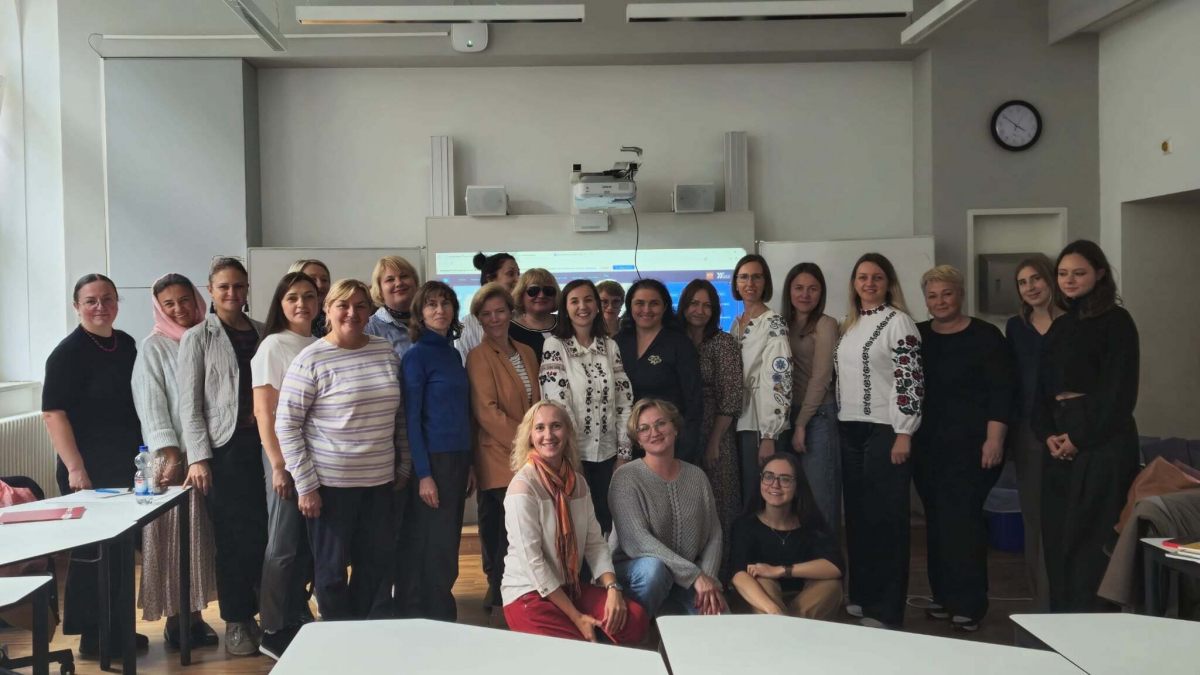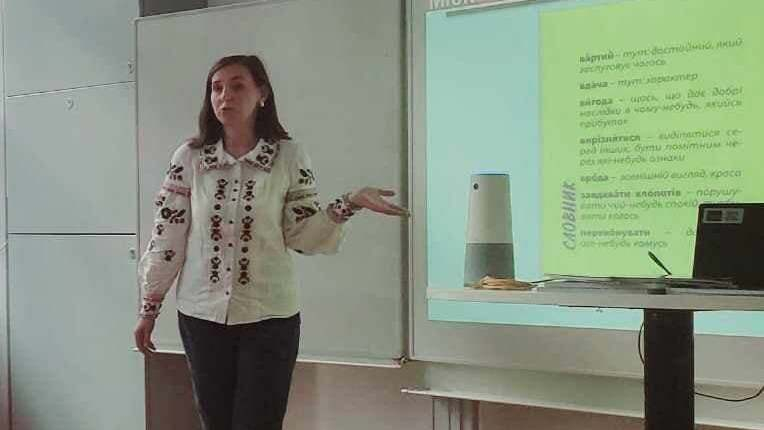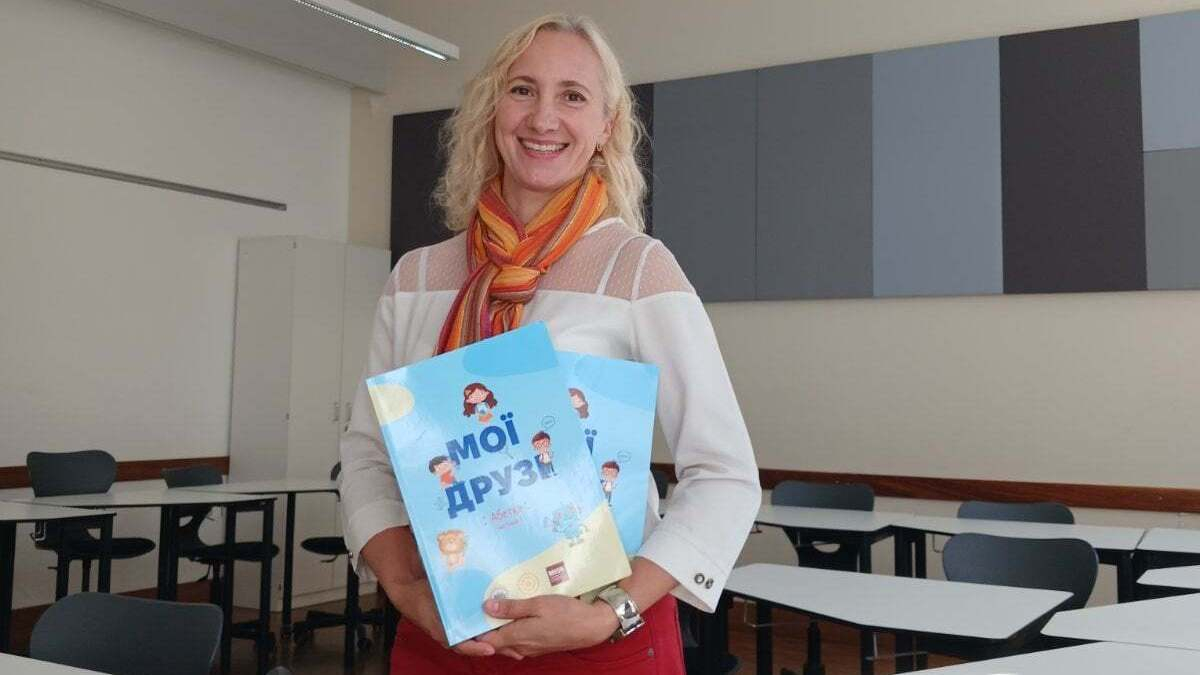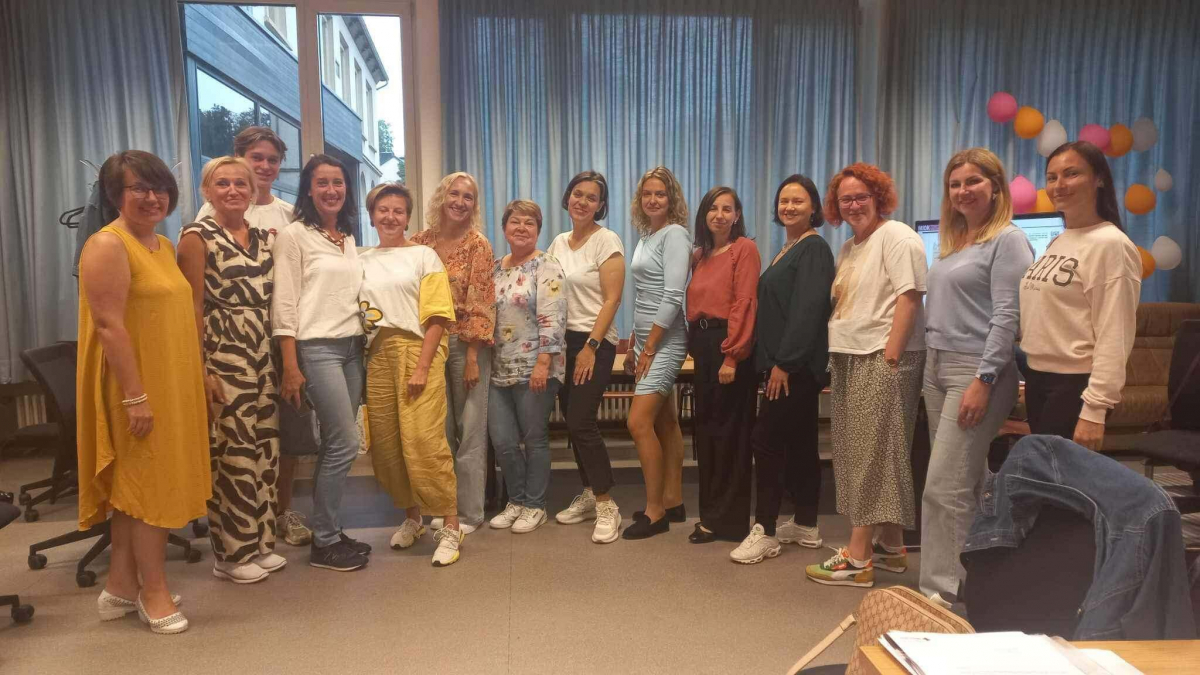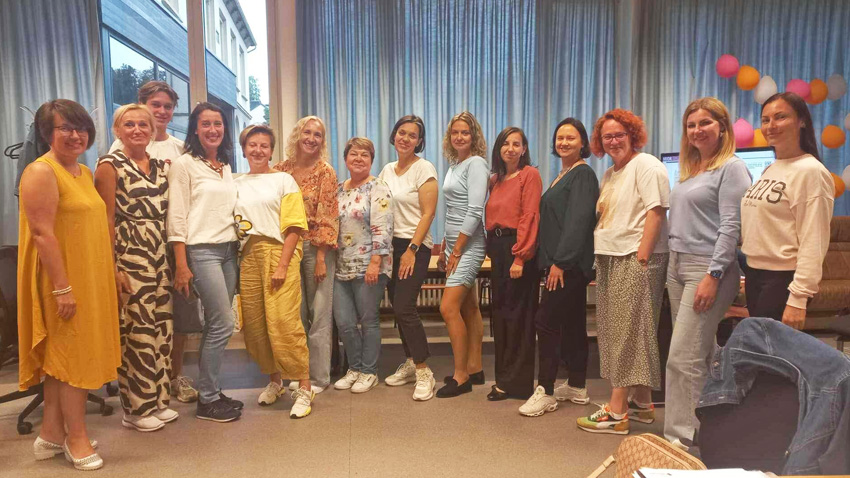Preserving the Ukrainian language for the diaspora and forced migrants is one of the most important tasks of our time. Educators from abroad and Ukraine are united by a common goal – to create high-quality teaching materials, manuals, and workbooks for learning the language, culture, and history of Ukraine. This synergy is necessary to counteract assimilation and promote Ukraine, its language and culture abroad.
Therefore, researchers at the International Institute of Education, Culture and Diaspora Relations, Lviv Polytechnic National University, in response to the challenges faced by educators due to the Russia’s full-scale invasion of Ukraine, and at the invitation of teachers of Saturday and Sunday schools, launched a series of scientific and methodological seminars «Educational Publications of IECDR: New Approaches to Teaching the Ukrainian Language» in Belgium, Luxembourg and Germany in September.
On September 21, 2024, researchers Halyna Boiko and Oksana Trumko met with educators at the invitation of Sofia Balych, the director of the Ukrainian School in Arlon, Belgium. They discussed the work of Saturday and Sunday schools and approaches to teaching Ukrainian studies. Together with teachers, the researchers conducted lessons for children aged 6–7, using the IECDR coursebooks, in particular «My Friends. ABC» which attracted the interest of the kids and received positive feedback from teachers.
On September 22, Halyna Boiko and Oksana Trumko spoke to Ukrainian educators in Luxembourg and Belgium. It was a productive and interesting meeting. The participants exchanged experience in teaching Ukrainian as an inherited and foreign language. They talked about the differences in teaching the Ukrainian language in secondary schools in Ukraine and abroad. They explained how the coursebooks The Key to Ukraine: Cities and People, Catch Skovoroda and Stories from Lesia’s Life, created at the Institute, can be used in educational institutions abroad. During the three-hour scientific and methodological seminar, they also discussed the strategy of working in multi-age and multi-level classes.
In addition to meetings with educators, on September 24, IECDR researchers met with diplomats, including Kateryna Bilotil, First Secretary of the Embassy of Ukraine in the Kingdom of Belgium. They discussed the needs of Saturday and Sunday educational institutions, the demand for which has increased significantly after 2022. We developed a program for further cooperation between the Institute and the Embassy of Ukraine in Belgium. It is important to develop the interaction between diplomatic services and Ukrainian communities, as evidenced by this meeting.
On September 27, Halyna Boiko and Oksana Trumko visited the Justus Liebig University of Giessen. Together with Nadiya Kiss, PhD, a researcher at the University of Giessen and co-founder of the Vision Ukraine research network, they discussed the problems of de-Russification of Ukrainian studies abroad and the relevance of spreading true information about Ukraine among the scientific community. It is very important that the issue of Ukrainian studies is in the focus of public policy. The First Lady of Ukraine Olena Zelenska has initiated the launch of a global coalition of Ukrainian studies that will bring together Ukrainian studies centers, academic programs, and research institutes from around the world. At the time when Ukrainian teachers, scholars, and students are suffering from shelling, our partners abroad are becoming a reliable support in creating a scholarly discourse.
After the presentations in Belgium and Luxembourg, on September 28, the IECDR researchers met with Ukrainian educators in Germany. This year, when Ukrainian was introduced as a second foreign language subject in Hesse schools, this seminar is particularly relevant. At the invitation of Roksolana Rakhletska, director of the Ukrainian Saturday School «Sun in the Palms», a meeting was held in Frankfurt am Main with the participation of IECDR members and teachers who teach Ukrainian in general education schools and Saturday and Sunday schools in Germany in different cities, including Frankfurt am Main, Düsseldorf, Darmstadt, Trier, Mainz, and others. They discussed the methods of teaching Ukrainian for different people, shared the scientific and methodological achievements of the IECDR, and suggested ideas for future projects.
The results of the trip showed that scientific and methodological seminars are ones of the most effective forms of communication between educators in Ukraine and abroad.
